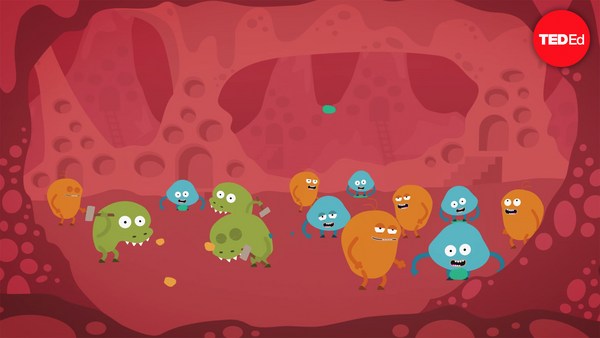[SHAPE YOUR FUTURE]
I want to find aliens. Finding life on another planet is not just going to be a little hard, it's going to be very hard. But for the first time in human history, we have a chance to detect signs of life on another planet. Or maybe we've already detected it on Venus. Or maybe not. There are still two big hurdles when it comes to confirming life on another world. The first is building a telescope big enough to do this, and the second is interpreting what we will find. When we think of extraterrestrial life, we tend to think of aliens like funny little green men, not aliens as single-celled microbes. But it's actually detecting signs of microbial life on another planet that I'm most optimistic about, and what I focus my research on.
I model how a star's high-energy radiation can make gases from microbes harder or easier to see with future telescopes. Microbes have dominated our planet's biosphere for most of Earth's history. They've been emitting gases that can be seen in our atmosphere -- even light years away -- for billions of years. Now, if an alien astronomer were looking at Earth, they would probably detect gases like oxygen, methane and nitrous oxide before detecting signs of us. Even with an active biosphere like Earth's, most of the gases that indicate life are coming from single-celled microbes, not from animals. This is what we'll try to do in the next decade of astronomy -- try to find signs of microbial life on planets orbiting other stars. But the technology to detect the atmosphere of a planet the size of Earth around another sun is incredibly difficult. It's like trying to determine the size of a firefly in front of a spotlight while looking from another continent. What's amazing is that with telescopes in the 2020s, we're overcoming this technological barrier.
The second issue defining alien life will be to interpret what these biosignature gases actually mean. Twenty-one percent of our atmosphere is oxygen, and nearly all of that oxygen comes from life. So here's the tricky question: Would detecting oxygen on another planet mean life? No, not necessarily, because we know of ways to get oxygen without biology.
I try to understand a planet's geology and its star's radiation so that we can better identify a true life signal. And this is what makes the preliminary detection on Venus of phosphine, a potential biosignature gas, so compelling but also so confusing. Venus is not where we expected to find life. It is a hellish world, with a surface temperature of nearly 900 degrees Fahrenheit. Could life be floating in the more temperate upper atmosphere? But then how would such life eat and reproduce? This discovery will have to be vetted over the coming decade.
First, we must verify the detection of phosphine itself, and then later, we would have to confirm that this gas is coming from life and not from some unexpected geological or photochemical process. If true, this would be one of the most profound discoveries of our generation. If it turns out that we were fooled, that we mistook this gas for biology when it's from some other process, we will have a sobering lesson to apply to planets orbiting distant stars.
Venus is close -- literally, our next-door neighbor -- and yet we still have trouble understanding it. The planets we're finding orbiting other stars are weird and unexpected. Some have the density of cotton candy, and others rain molten iron. And most stars are different from our sun, with high-energy flares that can make it difficult for life. So the more we're looking at different biosignature gases, the more we realize that there's no single gas that's enough to understand a planet and to claim alien life. It is just really difficult to distinguish life from nonlife from light years away.
And here's where the ambiguity lies. How will we know if a clue is a sign of life or is not? Well, first, we'll need to understand as much as we can about a planet's geology and the star it orbits. We'll learn vital lessons by exploring our own solar system in places such as Venus and Mars. We're getting closer to answering one of humanity's biggest questions: Are we alone in the universe? Any claim will be hotly debated.
So basically, I'm stretched between two desires. I want to find alien life, but likely will not have a clear answer. And that's OK; science is nuanced and self-correcting. It's what I love about it. Science is about balancing this duality of skepticism and of hope. We won't be able to teleport ourselves to another planet and take pictures of alien kangaroos jumping around. And without an intelligent "Hello, Earthlings!" signal, we might still feel lonely, even if we find out we're not alone in the universe. Despite these challenges, I'm super excited about alien microbes and what they could teach us. Even if we find just one other sign of life, then likely the universe is teeming with it, from single-celled to complex. If we search for decades and find nothing, then that is equally humbling. But we must try. We must do this search even when it means sitting with uncertainty along the way.
Thank you.





